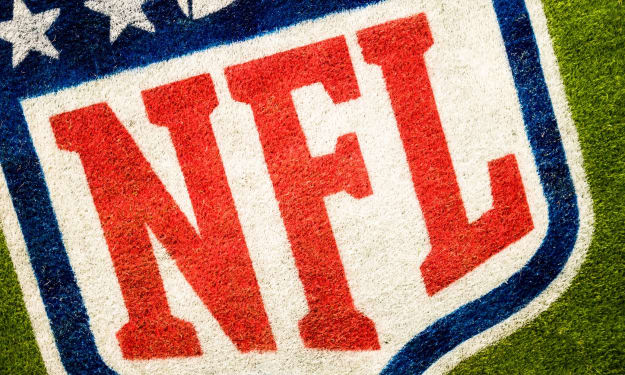Remembering Roy Halliday
Hall of Fame Person

When the news broke of Roy Halliday's death in the late afternoon of November 7, I was in shock. “No way,” I thought to myself. “It can’t be him. He is young and just retired from baseball.” But, as the news continued for the day, and his passing was confirmed, a wave of grief and loss hit me hard.
Although I had never met Halliday, I followed his baseball career over the years. He was as dominant a pitcher there could be. And when he was traded to my hometown team, the Philadelphia Phillies, in December 2009, there was ecstasy in the city. The Phillies had just come off making the World Series two years in a row (something they had never done) and winning the title in 2008 (something fans have been waiting for since they won their only other championship). This was it, we thought. The continuation of a dynasty. For the Phillies. Our hometown. Something people in my generation had never experienced before. And when it was over, something we most likely will never experience again.
I was born in 1976. The beginning of the Phillies' first Dynasty era. From 1976 to 1983, the Phillies made the playoffs six times, made the World Series twice, and won their first championship in 1980. The city had waited over 80 years for that first championship and waited 28 years for the next one. In between that time, from 1984 to 2006, they made the playoffs exactly one time (in the magical year of 1993). In that span, fans like me endured a lot of losing, and even more excuses for losing from the team.
But, starting in 2001, the team turned things around, made better player choices and eventually began their second Dynasty era. They finished in first place five years in a row, including the aforementioned championship. At the end of those last two championships, the city was blessed with the gift that was the Roy Halliday trade. The team did not give up much to get him, but in return, it received a talented player, and as it turned out, an even better person.
Roy Halliday was drafted by the Toronto Blue Jays in 1995. He made his debut for the Blue Jays in 1998. He showed flashes of dominance in his first two seasons. But, in his third season, 2000, he hit rock bottom. He posted a 10.63 Earned Run Average over 67.2 innings pitched, which is the highest for that many innings pitched in a season all-time. He was sent to the lowest level of the minor leagues at age 23, with his future big-league career in doubt. It would be easy for someone to become discouraged after that; to give up their dream of playing a kid's game professionally; to walk away, with regret, and turn a new page in their life. But Halliday did not give up. He did not bury his head in the sand or make excuses. He decided to overcome his issues and work harder.
After finishing 2000 in the minors, he rebuilt his delivery and bounced back to the majors the next year. Then, beginning in 2002 and lasting to 2012, he became the most dominant pitcher over that entire stretch. Those 10 years culminated with eight All-Star selections and two Cy Young Awards. However, after years of pitching for a Blue Jays team that was not making the playoffs, he got his wish and was traded to the Phillies in the midst of their Dynasty. It was love at first sight between Halliday and the Phillies, and most of all the fan base and the city.
He became an instant sensation, which included Halliday pitching a perfect game on May 29, 2010. In the first playoff game of that same year and the first appearance in the playoffs for him, Halliday pitched a no-hitter. He was the only the second person in history to pitch a no-hitter in the playoffs. The love was real. Here is a guy, very humble and soft-spoken, but very dedicated to his craft. The talent and drive of Mr. Halliday was immense, and the city loved him for it. He won the Cy Young award after the 2010 season and had another dominant season in 2011. But, as is the case with everyone, age caught up to him.
After two injury-shortened seasons, he walked away at the age of 36. It was not as if he needed the money in hanging around anymore. But with Halliday, it never seemed like money was a factor for him. He genuinely enjoyed what he was doing. He loved pushing himself physically and mentally to be the best. And the best he was. However, his body broke down, the injuries mounted, and the rehab processes were becoming more arduous. He decided to hang it up and live his life with peace and freedom. I mean, how many people can honestly retire at the age of 36 and say they are set for the rest of his life. Unfortunately for Halliday, the rest of his life was tragically short.
When he died, the first thing I thought of was his age. Here is a man, 40 years old, that was only a year younger than myself. He had retired only four years earlier. His career was still fresh in a lot of people’s minds and hearts. He had endeared himself to a city that, quite frankly, can be tough on its athletes. We demand a lot, not necessarily perfection, but heart, hustle and soul. And boy, did he deliver.
His triumphs on the field, however, paled in comparison to his triumphs off the field. He was a loving husband and father of two young boys. He was involved in his community and even coached the local little league baseball team. He did not seek any spotlight after retirement, only to live life to his own content and the happiness of his family. He still stayed in touch with the game that he was dedicated to for the first portion of his life as a guest instructor in spring training, but for the most part, he was engaged with his family. Part of the reason he retired was to spend more time with his family and see his two young boys grow up and enjoy life.
I think to my own mortality at tragedies such as this. A young person, younger than me, gone from this Earth in a tragic accident. I can never accomplish the triumphs in my professional career as Halliday did, and I can only hope to be half the man he was off the field and in retirement.
In the days since his death, anyone and everyone that had any interaction with Halliday had nothing but exceptional things to say about him. His character. His work ethic. The man himself. It is hard to be a better person than have a Hall-of-Fame type career, but that is exactly what Mr. Halliday achieved. He was a Hall-of-Fame person, a talent and a man that only comes around so often in life. And one that deserved a longer chance at his own life.






Comments
There are no comments for this story
Be the first to respond and start the conversation.